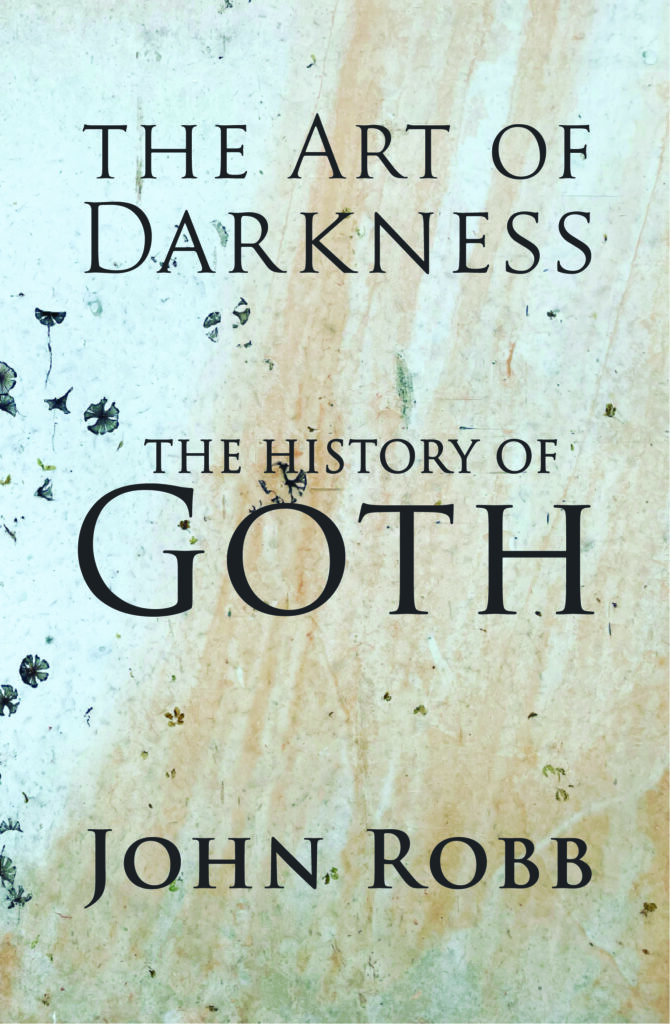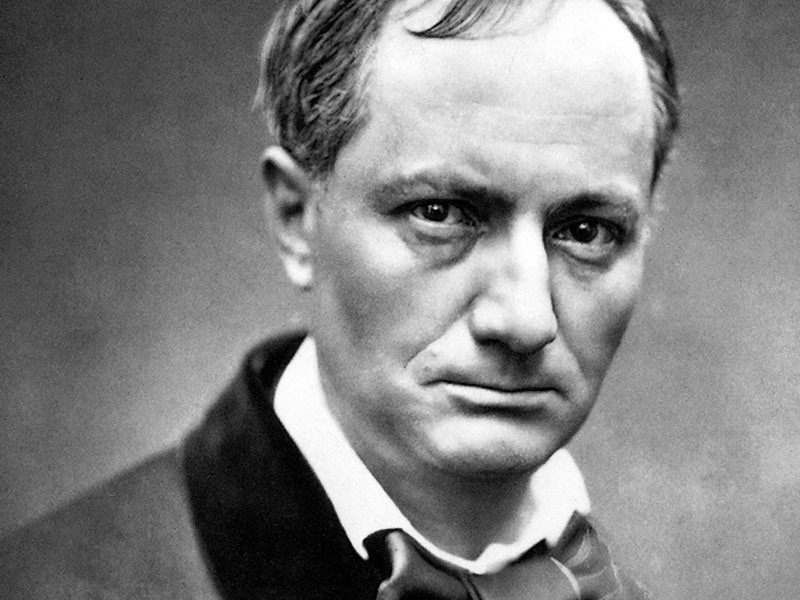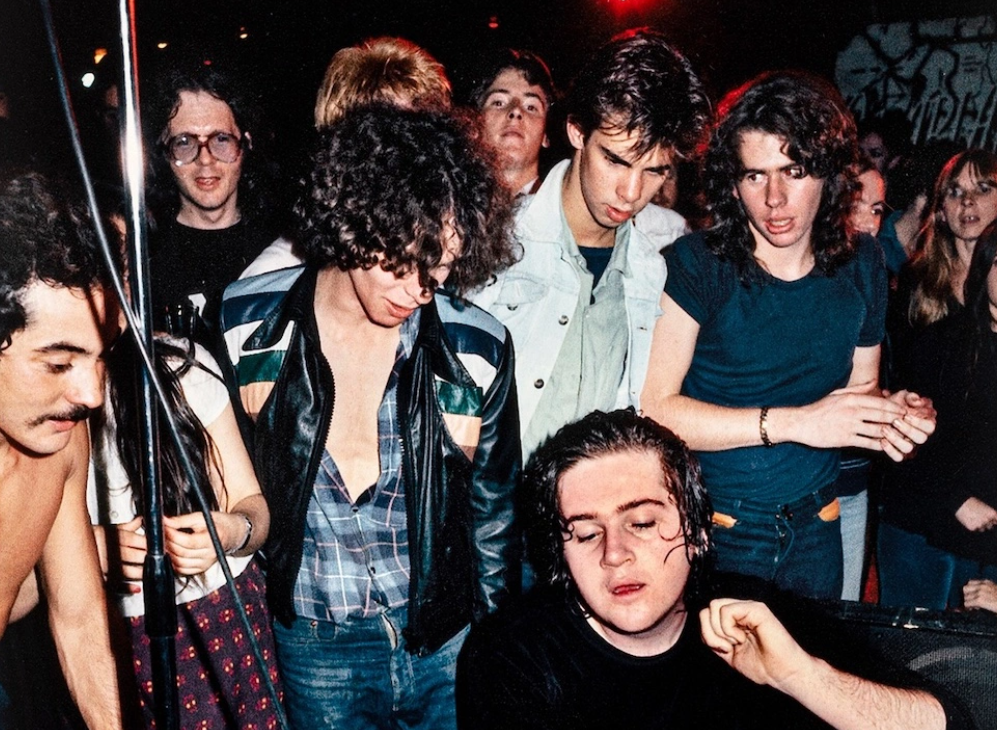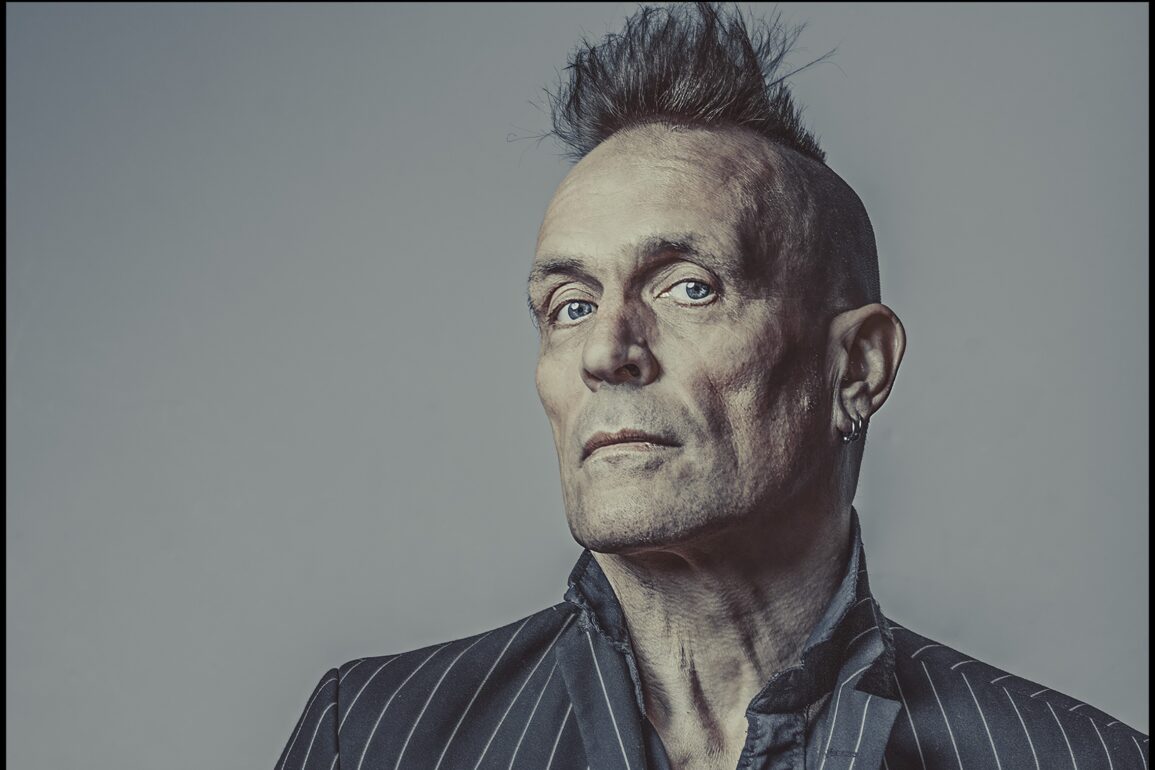Cover Photo Credit: John Middleham
John Robb is a legendary music journalist and the editor of the subculture website Louder Than War. Like me, he enjoys doing interviews -but he has a much wider history on that. He has talked with Nick Cave, The Cure, Bauhaus, Blixa Bargeld, Killing Joke, Ed O’Brien, and many more legendary acts. He also plays in the band The Membranes. What triggered our interview here, however, is his latest book focusing on goth culture and history, The Art of Darkness: The History of Goth. As you will see later on as you read it, the conversation went beyond the topic and became a lovely a chat on arts and culture in general, delving on the historical context of goth, the art of interviews, Turkey’s alternative music scene, intense concerts and more. You can read it all below.

We are two music journalists on the same Zoom screen. So let’s start this chat with an homage to another interview legend, Nardwuar: Who are you?
Who am I? Well, I am John Robb. I do a website called Louder Than War. I am in a band called The Membranes. And I just wrote a book called The Art of Darkness: The History of Goth.
I must say that The Art of Darkness covers goth pretty thoroughly: From the Visigoth to the modern-day goths, music to literature, from the classic definition of goth to everyone associated with or inspired by it. How much time did you spend working on such vast material, and what was your method of organization?
It was about eight years spent on the book, on and off. Had to be a big book. Think of all those musical cultures involved. And goth is about history as well. So you need to have those Romantic poets, you have to include the fall of Rome. Trace the story back to its roots. There are lots of musical movements happening in that vacuum of time. Goth is always there. It is basically every generation dealing with its blues, and dealing with the technology of that time. Whether it is writing books in the 19th century, or making music within post-punk here and onwards. Or, nowadays, being gothic on TikTok or Instagram, which doesn’t necessarily have the music in, but has that feeling.
The method of writing this book was just like any other book: To write non-stop. And it can just go on and on and on. (laughs) You just gotta keep on writing. It just means a lot of time and hard work, so it’s a good feeling to finish it.
Was there much material you decided to exclude from the final version of the book?
Oh yeah. Completely. The book could have gone on forever. I could have written a book of the same size on the modern goth scene. As you know, there is this goth scene in Turkey as well, like She Past Away. Loads of great bands. I wrote about them in the book, but I could not get into the same level of depth as, let’s say the early post-punk era, which defined punk as a subculture, so all the bands at that time were more understood as goth. If I could go that detail-oriented for the next three or four decades, the book would have about a million words. (laughs) So you have to double that down from an 800-page version to a 600-page book to read.

You describe Charles Baudelaire as “goth before goth.” I really love asking hypothetical questions, so here’s one: If Baudelaire were a goth musician in today’s world, what modern artists and bands do you think his style would be compared to? Would he sound similar to Diamanda Galas?
Yeah, he would be somewhere between Diamanda Galas and Nick Cave. That romantic darkness and embracing the dark side in a poetic way is his essence. The Flowers of Evil sounds very much like a Nick Cave song. Galas actually used Baudelaire as a direct inspiration as well.
I love to delve into the idea that goth is in fact a very poetic art form. It doesn’t always get a good reputation in the media. A lot of people forget that it is something really artful, both lyrically and musically. When Bauhaus were actively working back in the day, they never got good reviews in the press but were actually making groundbreaking art rock. They were ahead of the game. And still incredibly influential decades later.
You have to acknowledge the influence of all those Romantic poets, because they were creating art with the same ideology and the same embrace of melancholy. They were also living the same kind of very dissolute lifestyles. People think the rock ‘n rollers live in a really wild way, but the Romantic poets were much wilder.
Let’s play a game where I read you some lyrics and you try to figure out the artist and the song. First off:
“I put on my coat of trumpets
Will she be there? Is my piccolo on straight?”
I don’t know. Most of the time I can’t even remember my own lyrics. (laughs) I do remember some lyrics, but I can’t remember every single one. I just wrote a book with a million words in it. (laughs) If I tried to remember all those words, my head would explode.
I totally get that. That was from “Mr. Clarinet” by The Birthday Party, by the way.
Sick band. I have seen them play live. It was before they moved to Berlin. Before Germany, they were active in the UK as The Boys Next Door. They later changed their name. People were saying, “You gotta see this mad group from Australia, they attack the crowd!” (laughs) Their gigs were really kinetic and dangerous. There was this frustration and intensity. A lot of the bands around the time were like that. It was an intense time. Whenever you were to attend a gig, people would say “Oh, you should see them, they are intense!” The intensity was the parameter for those groups.
The early Birthday Party, it just seems amazing now that I think about it. There would be like thirty to forty people there. I had no idea that Nick Cave would be this huge international icon playing stadiums 40 years later. It’s just bizarre when you think about those early days. They all looked like they would fall apart the next day and kill themselves on drugs. Years later, they became respectable.
They could have easily killed themselves on stage, or drugs.
They played dangerous shows. Nick Cave actually assaulted the crowd. I think the drug use probably saved him, because it calmed him down a bit. (both laugh)
By the way, I included this song because as a Nick Cave fan, I did not know until I read your book that Nick once had a band named Concrete Vulture.
Well, you don’t have to know everything, do you? And it was a high school band. I don’t know if you saw it, but there was a specific photo of Nick Cave going around the internet from when he was sixteen, watching The Saints perform a gig in Australia. He just looks like this big, tall, goofy lad, looking at The Saints on stage and just going “Wow!” (The photo is right below -ed.)

He was always a rebellious figure, and he aged gracefully, and he is energetic at his 60’s as ever.
Yeah, I think he is amazing even today. He is better now. I think he is one of those artists who the more listenable they get, the better they become. He is still writing fantastic lyrics. He has become an icon of the times. When great music is stuck in the underground, it is annoying, isn’t it?
Since we mentioned The Birthday Party gigs: What was the wildest concert you have ever been to? Was it The Birthday Party, or another band?
Well, around that time, there were a lot of wild gigs. Killing Joke could be wild. They could attack the crowd with a level of intensity that was something else. The crowds were intense. Early Adam and the Ants gigs were intense. It was actually a theme of those times, nearly every gig you went to was intense. (laughs) I find it funny when I compare that to today, people are cute, and buy t-shirts after gigs. But in the 1970s and 1980s, people were fighting. It is better now, people go to gigs to have a good time, whereas then people went to get crazy. I liked that, I thought that kinetic energy was great, but it could also get nuts. It could feel like combat.
Next song lyric, any idea who this is?
“Everything you do is simply dreamy
Everything you do is quite delicious”
No.
It’s The Cure’s “Why Can’t I Be You.”
Which is a great song. My favorite The Cure album is Pornography. That’s the album most old-school Cureheads like. I saw them touring that album a couple of times, where again, the gigs were intense. Heavy, dark, gloomy… It was my favorite album that year. I thought, “Wow, the next album must be even heavier!”, and then they did that swerve into pop music. They called everybody out. I really like their pop records. I like pop records that are Syd Barrett-esque, LSD-influenced type of stuff. But Pornography was something else. You could get immersed in that album. Listen to it over and over, it is such a dark record. For their first four albums, each record got darker, and then exploded with Pornography. It is such a great journey.
The Cure is quite an extraordinary case in goth history in terms that they were one of the first to merge the audiences of mainstream and goth culture. And you mention how, in the present, goth culture transcends culture and identity more than in the past, that there is more open-mindedness. How do you think The Cure has factored in that?
The Cure has an interesting role in that. Like all other bands, they didn’t like the term “goth.” And none of them were called goth when it all started, it was called alternative music. The Cure, when they started, were more like an indie band. Then they became a “raincoat band”, that’s what people called bands like Joy Division and The Cure (because they wore big raincoats). When Pornography finally came out, they looked more goth. It came after Siouxsie and the Banshees, who were definitely an influence, in the way that they looked. So The Cure didn’t really start goth, they always were pretty much their own thing. They only became partially goth. But because of their style and because of how dark their music was, they became the gateway goth band for the next generation. Disintegration was a huge album around the world, and a massive album in America. That generation who witnessed Disintegration owes it all to The Cure.
Their relationship with the goth was quite interesting, really. For most young people, they are the first goth band to know, but The Cure were never actually 100% a goth band. They never claimed to be a goth band, but took the styling and the darkness of goth. For the audience, goth is pretty much a thing: You have goth clubs, and there is a whole goth culture, language, and music. But none of the key bands who actually influenced and created the scene, and were the pillars of the scene would say they were a goth band. Siouxsie Sioux would never say she was a goth. Andrew Eldritch hates the term! The only band that actually don’t mind the term is Fields of Nephilim. That’s a cool clash, it’s cool to observe what the bands think it is and what the audience thinks it is. Fascinating.
You said that for most people, their earliest exposition to goth was the Cure. Which makes me wonder, what was your first encounter with goth?
I grew up punk, so I guess I noticed right away that there was a different atmosphere with Siouxsie Sioux, the way she looked. The first Banshees album, The Scream, is a punk record, but it sounded different as well. It was starker and darker, and also more minimalistic with the tribal drumming on it. It’s just that sound. Now listening to that record, you could tell it as it is, but back then, it was quite a shock how different it sounded. But when you back down enough, you could say the same for many things. There is a darkness in early glam rock, with Bowie and Bolan, who I loved as a kid. They weren’t goths, but they had influences on goths. Some of the themes they were singing about and some of the music they made are quite influential.
And also The Doors. They were the world’s first goth band. They were the first band to be called goth in 1967 in a review. Jim Morrison’s baritone vocals and the baroque darkness in their music are really influential in goth. The Doors were not big in England until Apocalypse Now came out. Most people who were in the post-punk scene got into them after that film. The thing about The Doors is that they have become a retrospective influence. 10 to 12 years after Jim Morrison died, they got discovered as a new band because of Apocalypse Now. I can hear The Doors as proto-goth. That baritone-style singing. It’s all Jim Morrison.
You have interviewed many artists. Is there anyone you wish you could chat with that you didn’t have the chance to?
I would love to interview David Bowie if he were still around.
Let’s say from the people who are still alive.
Among younger artists, I would like to interview Grimes because she is really interesting. I like her records, but her interviews are even more interesting. She talks more than music, she talks about AI, medieval history… And cultured as well. A bit like how David Bowie was in the 1970s. They are beyond the brand of pop culture, they textualize it with all culture and all that is going on. They are thinkers. They also talk about stuff they don’t really understand and try to work it all out in the interview. I love when people do that. They don’t a safety net. They don’t have a clue about what to do and try to figure it out on the spot. I think Grimes is a very interesting person.
I have interviewed a lot of people. I feel as though I have interviewed most people. But there are always more people. It doesn’t have to be big bands too, you know? They don’t have to be people who are famous or culturally massive. I’m more interested in people themselves. Whether we are in an interview or just hanging out. I love that thing where you just have those amazing conversations with people that just take off and you talk about everything. You talk about science, religion, music, culture, painting, making the world better. All those kinds of things. It doesn’t have to be somebody who makes a record or is culturally significant. It could just be interesting people. So, in a way, doing interviews is just finding somebody interesting to talk to.
That is actually my main motive for making interviews, so I vibe with that statement.
Yeah. Obviously, it’s nice if people buy my book so that I could survive for the next two years. (laughs) I need to do lots of stuff in order to live, but I just love stuff to talk about. So it is nice to do these interviews, to talk about music. And one of the great things about goth, of course, is that it’s not just about music, is it? It’s a culture and an art form. Music is artful, but we could talk about Baudelaire, we could talk about the poets, and we could talk about medieval architecture. It’s all in there. That’s what I liked about doing this book. It wasn’t just a list of records, it wasn’t just an encyclopedia of just music. It’s about all culture, especially the dark side of it. It’s a history book in a sense because it is dealing with what all generations are doing to deal with this mood.
(The Doors) were the world’s first goth band. They were the first band to be called goth in 1967 in a review. Jim Morrison’s baritone vocals and the baroque darkness in their music are really influential in goth.
John Robb
Among your vast interview history, has there been one where things have gone sideways for you, where you just thought, “Oh, this is turning out to be a bit of a disaster?”
Blixa Bargeld was quite difficult to interview. He comes from a time when an interview was a combat. Journalists of the 1970s were focused on doing interviews where they catch the artists off guard. That was the 1970s music writing, it was all about that. Lots of Lou Reed interviews feel like the two sides are jousting each other out. There is no love lost at all.
I interviewed Michael Gira from Swans years ago, and he was a very difficult man then. Twenty years later, I interviewed him again, and he was utterly charming and really interesting. Some of those artists started realizing at a certain age that the interviewer is actually interested in what they are doing. I wouldn’t interview someone who doesn’t interest me, I’m too busy, you know. Most of the time, we do stuff because we just like it. Some other older artists still think journalists are pains in the ass who try to catch them off guard, so they stay alert all the time. Some learned and some did not. Nick Cave is great to interview now. He used to hate music journalists. At some point, he must have realized they actually like his music. They help you survive in a sense. (laughs)
Interviews also became really accessible in all sorts of formats: Videos, podcasts… The accessibility also may have helped the image of music journalists.
I see them as a platform for ideas. If someone reading this has been intrigued or inspired by our conversation, then it’s worth our time. That’s the fascination for me. All great writing is like that. When you read an interview, you may feel inspired just like music. Interviews are an art form, just like photo sessions are an art form. If you treat everything in culture as an art form, it becomes art, doesn’t it? Whether people like it or not is irrelevant, because you could only make it yourself, couldn’t you?
Let me ask you something. What’s the scene like in Turkey at the moment?
I think there are lots of cool and creative people full of ideas at the moment. I am also involved in the punk scene, I made some really cool friends there. It becomes a relatively small scene when you compare it to a scene like London’s, and the underground scene is mostly made up of people who play in several bands at the same time. That also has to do with the fact that they have the capacity to play in different genres and styles. Lesser people do not mean lesser quality. That’s why, more often than not, interesting music comes out. You already mentioned She Past Away. They became really huge, possibly the hugest alternative band to come out of Turkey in recent years.
And they are one of the biggest goth bands in the world now. It goes to show how global culture has changed in the last century, doesn’t it? Big acts don’t have to come from just US or England anymore, they can be anywhere. What was that band called? BaBaZu…
BaBa ZuLa.
Yeah. I know those guys. I’ve seen them play in Istanbul a couple of times. Great band. Are they still around?
Yes.
That’s cool. I also know some punk people from Turkey who come to festivals in the UK.
Do you know Padme, or Cemiyette Pişiyorum?
Yeah! Love them. One guy that I know is in a band that is probably neither of those two, but I can’t remember which. He sent me stuff over the years which was pretty good.
That was a great chat. If you have anything to add, please do, John.
Let’s keep in touch. Just tell me about anything cool about Turkey, it’s always something interesting to hear about.
You can buy John Robb’s book The Art of Darknes: The History of Goth here.



